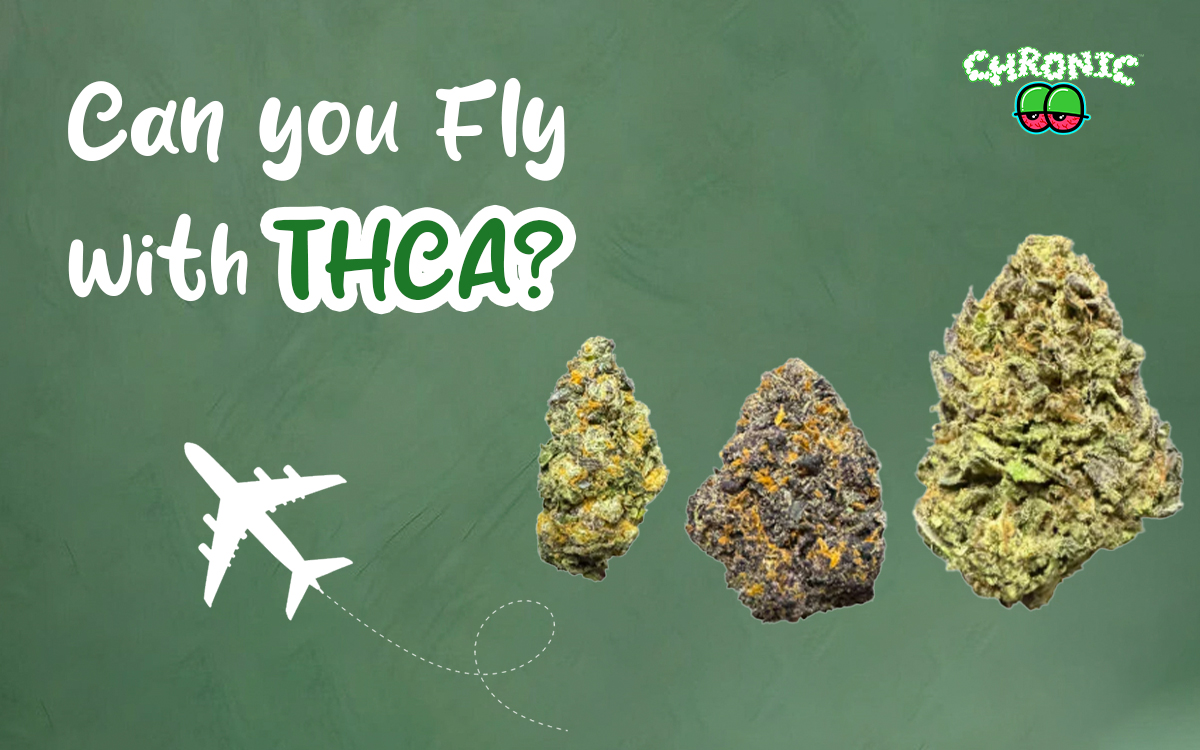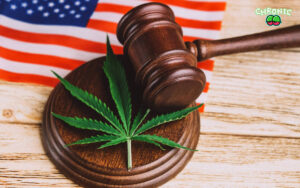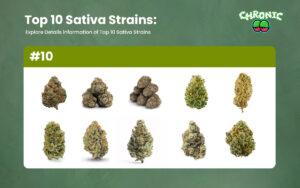Answering can you Fly with THCA? you must know what THCA is. Well, THCA is frequently described as a tincture of cannabis that is devoid of psychoactive effects for the benefit of patients who wish to carry the flower to some extent without breaking any laws regarding cannabis.
Whereas, while THCA does not produce the harmful psychoactive effects of THC, it remains a cannabis product that is prohibited at a federal legislation level in many countries, and certainly in the United States of America, where cannabis remains illegal at a federal level.
For example, take the USA where THCA and cannabis are mostly transported by the travelers themselves, which is not only irrational but also illegal since it contravenes the federal aviation laws. However, in certain American States where marijuana has been legalized, in this particular instance which involves domestic air travel, these passengers may be permitted to possess these items.
The Transportation Security Administration, on the other hand, operates under federal law which criminalizes all types of cannabis whether in carry-on or checked baggage. This also applies in the case of airports whereby possession of THCA may result in confiscation or an outright fine.
Before Fly with THCA know about TSA Regulations
Under the most recent recommendations of the TSA, services in the above pre-flight packing may be provided with great difficulty when it comes to packing tetrahydrocannabinolic acid (THCA) due to the fast pace of changes in the legislation regarding cannabis.
The TSA (Transportation Security Administration) is a federally mandated body that governs air travel within the United States. Hence, most of its implementation strategies tend to align with the dominating federal laws. This includes the limitation of physical access to Marijuana and any other cannabimimetic agent that contains more than 0.3% dry weight Gamma TetrahydroCannabinol-THC- level despite the states engaging or close to engaging in medical and or recreational marijuana use.
One likely explanation is that the TSA screeners are not focusing on searching for flowers; their primary concern is security. Alternatively, should any remnants of THCA be found, the agents might contact counsel to know whether the presence of such a residue is allowable by the law.
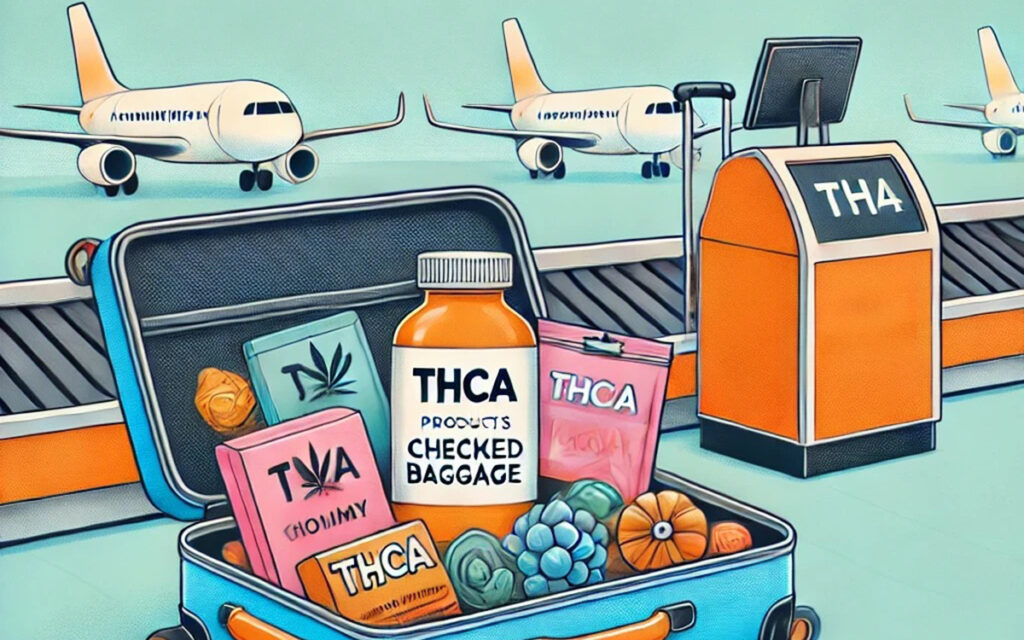
The critical point in this issue pertains to whether the THCA under consideration contains 0.3 percent THCA by weight, then the product will be classified under hemp as per the 2018 Farm Bill. For this reason, one should prepare and keep product checklists that comprise the details on the amount of THC present in various goods consumed, such as THCA concentrates, oils, edibles, and most importantly, HEMP THCA products while on the move.
Packing solid forms of THCA such as edibles might alleviate the restrictions imposed on the carrying of liquids, however, this should be done with care as it can also be suspicious. It is preferred not to take chances as it is better to check what the law states regarding the states and TSA rules on their policies while boarding a plane since some variations are likely to be seen at each airport and state.
As a precaution, passengers should make sure that any THCA product that they possess falls under what is considered a hemp product by TSA and that there are also supplements for this to avert any issues at the screening point.
State Laws for Flying with THCA
THCA is widely known for its heat reaction which is responsible for converting THCA to delta-9 THC a process called decarboxylation. The interesting fact though is that in the sense of regulation, because THCA itself does not cause any forms of intoxication or even high, it has created a quirky situation in the regulation of cannabis in quite a number of the US states.
THCA, much like every other new product In most jurisdictions falls into a borderline because it is psychoactive only after some transformation. The regulation of such matters, however, with only one exception being the case of Idaho, is not uniform and most of the time is tribal. Where marijuana is legalized for any purpose, the use of THCA by most states is also allowed.
Consider Reading: 10 Things You Need to Know About THCA
Some of the American states’ hemp laws have featured THCA as the state authorities realized that industrialized hemp has the potential to contain more than 0.3% of THC. For example, more specifically in Colorado, California, and Oregon, there are no controls on THCA offered in the restricted products. On the other hand, Mary Jane incarnates in some states where it is illegal and she is known as THCA obtained from this form of cannabis.
On the contrary, THCA which is extracted from hemp may be legal but the difference in state laws is significant. The consumers should take what the laws dictate into perspective because the difference in laws on the quantity of THCA that can be used and how one goes about converting the THCA into THC can land one in trouble.
Restricted Products
Travelers should note that airlines are particularly restrictive on THCA due to its nature. The more complicated any such product would get the more likely it would be considered controlled.
Hence it is clear that one can only travel to particular regions where medical marijuana is permitted for only a certain extent. Every person shall also be counted and this is halfway through the TSA policies. The TSA however does not allow people boarding the plane with such goods including any product containing THC delta 8 and other active ingredients and products that contain more than 0.3% dry-weight tetrahydrocannabinol.
Still, they do not impose drug penal codes on travelers, and most such articles will probably attract the attention of law enforcement and the processes that come with them, which is the risk of losing the items concerned.
Food products, oils, tinctures, or anything that falls under the category of THCA-related items could also face very strict compliance controls as such items might not have any psychoactive effects in their natural form.
Concerning air travel, there are a lot more advanced provisions, limitations, and prohibitions that are applicable even to people who are about to take a flight. This assists in doing away with fears more so of a person who is wishing to go along with THCA items.
Medical Products
When it comes to carrying any cannabis-related products, especially THCA particularly when air travel is concerned, such behavior is probably most critical. In this case, THCA in its purest form is solidified in a form called shatter which is a low moisture content resin of THCA that can hardly be returned to the paste consistency with simple application of heat.
Thus, tetras thc has no negative facets, thus there is no restriction in age to its usage; but in reality, many view it as a hard drug, meaning a medication that affects cognitive processes that were once thought to be pump-free. air travel regulations and or state law should be observed prior to the commencement of the travel.
If in doubt it’s always prudent to keep on the dispensary containers the labels and the contents when carrying on board inter-island flights medical THCA products. Take these in your cabin instead of the checked luggage as the latter is usually subjected to temperature changes which may not be favorable to the THCA products.
Whenever you are going out of the country kindly remember to have with you a chronic ailment proof such as a medical practitioner’s recommendation or a medical card because despite being medical cannabis every nation has its own rules about that.
Last but not least, with the above outlined, find out if there are any drugs that one is allowed to travel with in case the destination forbids some THCA products because neglecting to do so will land one into trouble in that Country.
Airline Regulations
Traveling with THCA (Tetrahydrocannabinol ic acid) requires an understanding of airlines as well as the federal government’s existing laws, because THCA is closely related to THC, the active psychoactive component of cannabis.
THCA on its own does not have psychoactive effects; however, when exposed to heat in any form of application, it is capable of changing to THCA, which is a Schedule I drug as it is regarded by the federal government.
It goes without saying that because of these facts, personal effects regulations dealing with THCA are not the same, again mostly restricting the discussion to the internal and international travel of a given airline along with their internal policy.
To illustrate, a TSA officer authority is unlikely to perceive any waste-affecting materials such as marihuana and its by-products as a security threat that justifies searching the individual for body concealment.
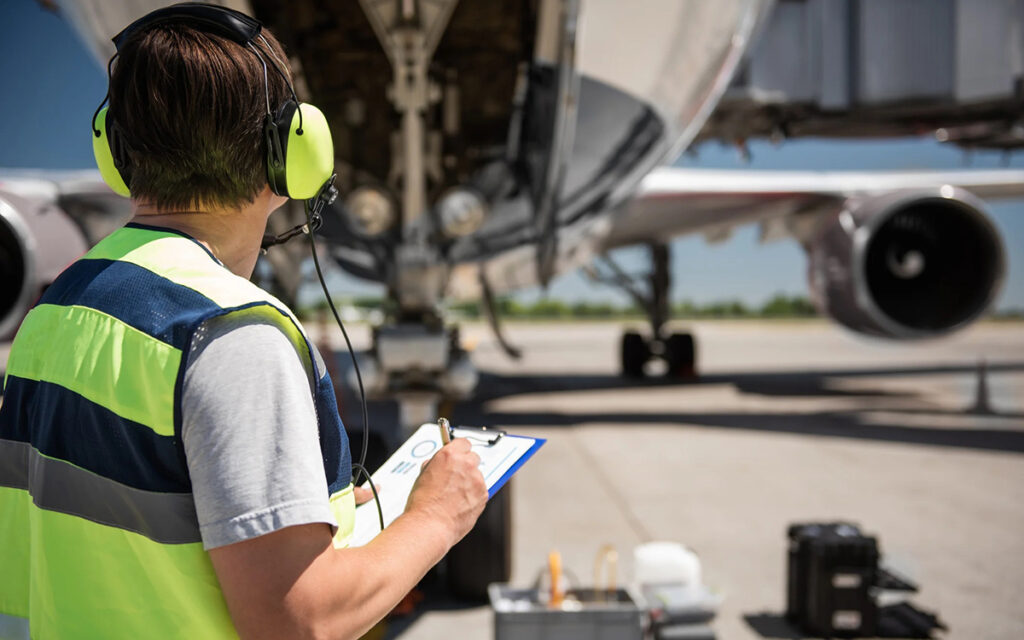
In simpler terms, if any cannabis products or goods are found during the inspections, no arrests or detentions will be made; rather, they will be handed over to the relevant local agency, for example, the TSA, to take the necessary actions.
Particularly for intra-state travel to states that permit marijuana use, there will be less restraint, but again, if there are THCA products, such may still be taken at the airports in the restrictive states or countries.
Traveling internationally, on the other hand, entails researching the regulations in the foreign country since most do not allow any form of cannabis, including THCA. To minimize issues, always make sure you go through the airline’s policies and TSA guidelines, as well as the legal position of carrying THCA in the place of your traveling destination, before travel.
International Flights
The topic of the paper; Transportation of Humanitarian and Compassionate Assistance (THCA) addresses air logistical operations in which other logistical shelve items like food, medical equipment, or even people, are supplied to locations suffering from extreme scarcity or emergencies.
Cores of Logistics understanding and knowledge are required to leverage the THCA whenever it is being activated both in a foreign country and within the borders. Regarding this activity, the active involvement of the concerned governments, the respective international aid organizations, and the air carrier concerned is used to get optimum operational coordination.
Aid transport activities executed under the THCA envelope that typically include transportation of essential medical equipment and consumables and medical evacuations have enhanced prospects of being accorded the advance notice period for the designated landing and airspace clearance which aids in achieving the target zones effectively.
Humanitarian flights as mentioned above are allowed to operate under the customary rules of international aviation for purposes of customs and health control. Quantitative work about ethical principles and different types of professional conduct towards the wearing of uniforms is also applicable to aircraft crew members.
Certain occupational quotas on the regular ban policy regarding such flights may be exempted which simplifies the implementation of THCA-associated tasks. This is crucial since it helps the society in question and guarantees that help can always be provided when required without causing any frustrations, and even narrates the history of the world in such a time full of calamities.
How to Fly with THCA?
THCA in itself cannot get you “high,” but can be converted to THC when the right conditions arise (such as in subject to heat, etc.) which means practical rules on traveling differ from one destination to the next.
Know the Laws of Your Country before Fly with THCA
Most of the countries also include THCA in the list of banned drugs and thus it is categorized as controlled irrespective of the fact that it doesn’t have a similar impact as THC. In the case of the United States, for instance, the 2018 Farm Bill enacted the legal instrument, which made THCA and THCA products containing less than 0.3% of THC allowed.
More: Legal Cannabis in the USA
Despite the existence of individual cannabis laws in various states, some of these states might still consider THCA illegal hence inspect the statutes of both the state of embarkation and the destination.
Guidelines Given by The TSA
The TSA is not very active towards marijuana checking but if they find it, they are obligated to inform the police. In any case, it is advisable to expect that there might be some hassle at the airport if you are flying with THCA since even though THC is an integral component in THCA, just below 0.3% of it is according to federal law, THCA is still hemp.
If the THCA is likely not to be legally considered industrial hemp, expect that there will be some complications as regards the law due to the potential presence of THC content.
Packaging and transportation elements
With regards to THCA transfer, it would be advisable to use opaque and airtight containers to minimize the risk of opening the container. Preserve corroborative documentation that proves the legality of the supplied product as hemp. Moreover, It should be packed in ways that do not suggest any kind of narcotic substance.
Foreign Trips
In the likelihood of taking a plane flight to another country, customs authorities are more likely than not to ban or outright seize THCA content. It is recommended to research the cannabis legalization 14 laws in advance to the country that is visited to avoid such legal issues.
Nonetheless, it requires a lot of caution, an awareness of the dosage temperament laws within which the product is meant to be used, and most importantly following TSA rules.
Packing and Carrying
US-ing THCA (Tetrahydrocannabinolic acid) on the other hand would result in frustration especially because of the various legal jurisdictions that are at play. Products that are untapped or heat-cured usually have this element in them most of the time do not pose any psychological effects.
However, it should be noted that in some regions THCA, however non-psychoactive, can be easily heated into the more narcotic tetrahydrocannabinol. As for the USA, the TSA, which is the Transportation Security Authority, acts in the spirit of the law which bars the possession of any form of cannabis, including THCA, regardless of state laws, even the ones that allow it.
As such, carrying THCA through TSA could mean anything from confiscation to criminal charges or fines. Hence, for the sake of comfort and peace of mind, most individuals will avoid flying with THCA strained especially for long-distance travel. Nonetheless, one must also check the local laws applicable at the last destination and the respective airline policies concerning cannabis products.
Can you fly with THCA flowers?
Traveling with THCA flower (the Tetrahydrocannabinolic acid) may pose challenges since it is also regulated within cannabis laws. THCA, which is non-intoxicating, occurs in cannabis and will only turn into a mind-blowing compound Tetrahydrocannabinol( THC) after applying heat or via decarboxylation.
Social cannabis fake flowers consider that in this legal bracket, cannabis relegates any geographical barriers, and the factors governing participation will differ. In the USA, a THCA flower is regulated the same way as any other narcotic and poisonous substance according to federal law, regardless of its medicinal properties and unless the drinks are made from hemp which contains less than 0.3% THC.
Domestic Travel however entails more than just guiding the passengers in air travel including the compensated transportation of marijuana THCA flower inclusive even to the federal violation risk involving such travel even to the intra-state where marijuana is not prohibited.
Both Within national borders and Outside of them, it is more complicated since the majority of the countries have very strict cannabis policies. Before taking a vacation with THCA flowers, check again all laws in force at the places of departure and arrival respectively. In restraints like this, I would advise being very cautious when even venturing across borders with cannabis-infused products.
What will happen if the TSA finds THCA in my luggage?
The measures that will ensue from such a situation will be based on applicable statutes and local jurisdiction. THCA-containing bags are spotted by TSA at any given airport across America.
THCA is an element of marijuana which once inhaled either through a vape or smoked turns into the chemical responsible for the high in the cannabis plant, THC. Because of this, this is how the situation is bound to unfold:
Duty of the TSA:
There is a layman’s understanding whereby not even the sweetest potato agents do so-called profiling of potentially dangerous or criminal people for illicit drugs, especially those who keep guards which is their primary duty protecting from visible threats such as guns, explosives, and any other means of attacking.
But they will not attempt any of those. However, x-rays may detect marijuana products which may lead to detailed checkings. They are not on the hunt for marijuana however if it’s in plain sight or in some waves inside luggage, they will have to report it to the authorities.
Possession Laws:
There are differing set possession forms, for carrying THCA, relative to which state one finds himself in. In places like my African country where drug abuse has been decriminalized for either recreational or medicinal use, one is less likely to be arrested for possessing THCA.
In contrast, in areas of the country where cannabis is not allowed in its entirety, carrying THCA as well would be considered criminal except if one has a prescription or is within allowable limits.
Federal vs. State Law:
Even though a couple of states have legalized marijuana, the United States Controlled Substances Act declares marijuana to be illegal, and TSA being federal is hence covered under the applicability of federal law.
In that respect, even though medical or recreational cannabis may have been legalized by some states, that does not preclude the TSA from informing relevant law enforcement regarding cannabis for any federal investigations.
Anticipated Effect:
In those regional zones of permitted use and consumption of marijuana as indicated within certain limits, rather than suffer consequences, you might be fine or have flown even less.
However, in cases where the law is unforgiving regarding cannabis or where the quantity you are possessing is over and above what is legally acceptable, confiscation of THCA is likely, and there is a higher chance of imposed fines, arrest, and prosecution.
This has always been the case; and especially when the issue of people shifting to cannabis products comes into bear, it is wise to think of both foreign law and state law on the same subject.

